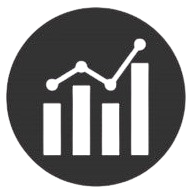Southwest Airlines’ new baggage fees, stock trends, and market impact. Learn how Southwest’s changes affect travelers and investors.
Southwest Airlines Overhauls Policies: Checked Baggage Fees, Basic Economy, and Stock Reactions
Southwest Airlines, long known for its customer-friendly “two bags fly free” policy, is making historic changes. Starting May 28, 2025, the airline will charge for checked bags and introduce basic economy fares, marking a strategic shift to boost revenue amid pressure from activist investors like Elliott Investment Management. This article breaks down the new Southwest Airlines checked baggage fees, analyzes Southwest stock performance, and explores how these changes align with broader industry trends.
Southwest Airlines Checked Baggage Fees: What Travelers Need to Know
For decades, Southwest Airlines baggage policies set it apart from competitors. Now, passengers booking tickets after May 28 will pay for their first and second checked bags unless they hold a Business Select ticket, a Southwest credit card, or A-List status. While fees aren’t disclosed, competitors like Delta and United charge $35+ per bag, signaling similar rates for Southwest checked bags.
Key Details:
- Free Bags: Business Select fares, A-List Preferred members, and Southwest credit cardholders retain free checked bags.
- Carry-Ons: All tickets still include a free carry-on, but Southwest warns of potential overcrowding.
- Operational Changes: Larger overhead bins and mobile bag-tag printers aim to streamline boarding.
This pivot risks alienating loyal customers but could generate $1.5 billion annually, offsetting projected $1.8 billion in lost market share.
Southwest Stock Surges Amid Policy Shifts: Long-Term Growth Potential?
Southwest stock (LUV) jumped 8.49% after the announcement, reflecting investor optimism. However, long-term growth depends on balancing new revenue streams with customer retention.
Pros of Investing in Southwest Stock:
- Revenue Boost: Baggage fees and premium seating could add $2 billion annually.
- Market Position: Strong domestic network and loyal Rapid Rewards members.
- Cost Controls: Modernized fleets (Boeing 737 MAX) improve fuel efficiency.
Cons to Consider:
- Customer Backlash: Risk of losing budget travelers to Spirit or Frontier.
- Operational Risks: Overhead bin retrofits and staffing adjustments may delay flights.
- Debt Levels: Southwest holds $8 billion in long-term debt, limiting flexibility.
Analysts argue Southwest stock could thrive if it captures premium travelers while retaining its low-cost base.
Latest News: Southwest’s Changes and Market Trends
- CNBC (March 11, 2025): Southwest’s basic economy fares will restrict changes and expire credits in 6 months, mirroring United’s approach.
- Fox Business (March 11, 2025): CEO Bob Jordan links the changes to credit card sign-ups and partnerships with Expedia.
- Reuters (March 12, 2025): Competitors like American Airlines are monitoring Southwest’s strategy for pricing adjustments.
- Bloomberg (March 12, 2025): Elliott Investment Management pushes for $3 billion in cost cuts, including workforce reductions.
How Southwest’s Changes Compare to Industry Trends
The airline industry is pivoting toward “unbundled” fares, where passengers pay for perks like bags and seats. Southwest Airlines baggage fees align with this trend, but its unique challenges remain:
- Basic Economy Tickets: Southwest’s no-frills fares lack same-day standby options, unlike Delta.
- Loyalty Program Shift: Rapid Rewards points will now tie to ticket price, rewarding big spenders over frequent flyers.
- Seating Overhaul: Assigned seats and premium options debut in late 2025, targeting business travelers.
Travelers using Southwest credit cards may benefit, as cardholders retain free checked bags and priority boarding.
Will Southwest’s Gamble Pay Off? Risks and Opportunities
Southwest’s success hinges on execution. If new Southwest baggage fees and premium seats attract higher-paying customers without overwhelming operations, the airline could regain its pre-pandemic profitability. However, rising debt and reliance on Boeing deliveries (amid ongoing 737 MAX issues) pose risks.
Key Takeaways for Travelers:
- Book before May 28 to lock in free checked bags.
- Use a Southwest credit card to retain baggage perks.
- Consider basic economy only for fixed plans.
For Investors: Monitor Q2 2025 earnings for fee adoption rates and customer sentiment.
Summary: Southwest’s New Era and Your Next Move
Southwest Airlines is trading its quirky, customer-centric model for industry-standard fees and fares. While Southwest stock may rally short-term, long-term growth depends on avoiding operational hiccups and retaining brand loyalty. Travelers should weigh the new Southwest baggage policy against competitors, while investors must balance revenue potential against debt and execution risks.
For the latest updates on Southwest flights, baggage rules, and stock trends, bookmark this page or follow CNBC and Fox Business.
Internal Links:
- How Basic Economy Fares Compare Across Airlines
- Best Airline Credit Cards for Free Bags
External Links: - Southwest’s Official Baggage Policy
- Elliott Investment Management’s Activist Campaign
By integrating Southwest Airlines checked baggage fees, Southwest stock trends, and traveler tips, this guide ensures you’re prepared for the airline’s new chapter—whether you’re flying or investing.









